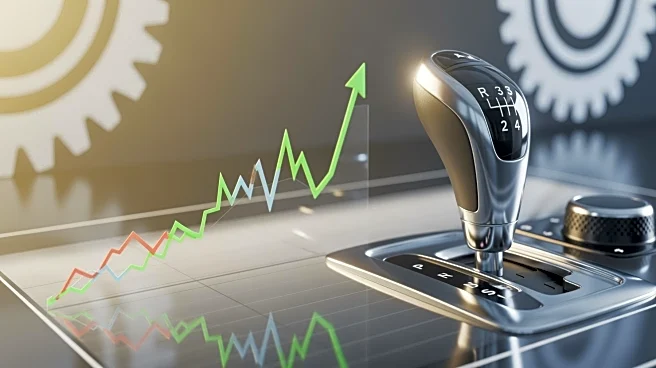What's Happening?
Anan Bishara, CEO of Premium Guard Inc., has warned consumers to stock up on auto parts as President Trump's tariffs are set to increase repair costs significantly. The tariffs, which took effect in May,
impose a 25% duty on imported vehicles and auto parts, affecting components from countries like India. Bishara predicts that prices for items such as catalytic converters could rise from $1,200-$1,500 to over $2,500. The tariffs are part of a broader strategy to encourage domestic manufacturing, but they have also led to increased costs for consumers and disruptions in the auto supply chain.
Why It's Important?
The tariffs are expected to have a substantial impact on the auto industry, leading to higher costs for consumers and potentially affecting the market for imported vehicles and parts. This could result in increased demand for domestic manufacturing, as companies seek to avoid tariffs by relocating production to the U.S. However, the transition is costly and complex, involving significant investments in new facilities. The price hikes could also affect consumer behavior, with potential delays in routine maintenance and repairs due to increased costs.
What's Next?
As the tariffs continue to affect the auto industry, companies may accelerate efforts to localize production in the U.S., potentially leading to job creation and investment in new manufacturing facilities. The ongoing trade tensions between the U.S. and China could further influence the availability and cost of auto parts, particularly those reliant on rare-earth materials. Consumers may begin to feel the full impact of these price increases as they ripple through the market.










